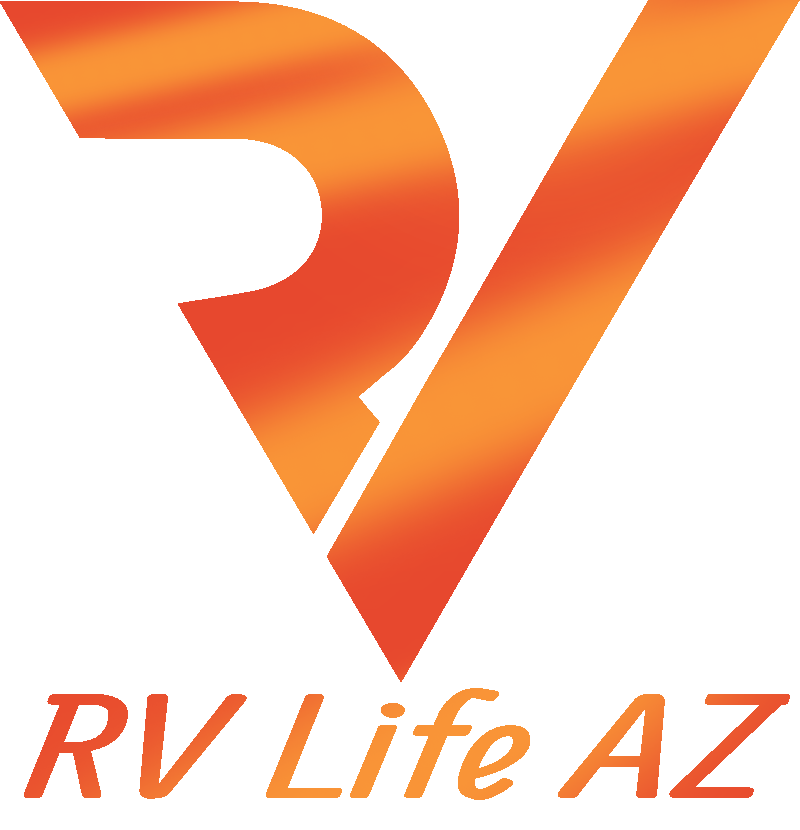Ultimate Guide to Safe Towing of RVs on US Roads
Towing an RV isn’t as simple as just hooking up and driving away. Many RV owners struggle with heavy loads, vehicle sway, and difficulty handling turns or braking safely. Without the right knowledge, towing can quickly become stressful and even dangerous.
Whether you’re hitting the road for the first time or have towed before, it’s important to understand your vehicle’s limits and master safe towing practices. This comprehensive guide from RV Life Arizona will help you avoid common pitfalls and tow your RV safely, so your travels are smooth and worry-free.
What You Need to Know Before You Tow Your RV
1. Towing vs. Payload Capacity
One of the most crucial aspects of towing safely is understanding weight ratings. Never overload your RV. Overloading increases accident risks, mechanical failure, and reduces braking efficiency. More weight puts extra pressure on tires, the frame, and suspension.
To tow your RV safely, you need to understand both your vehicle’s towing capacity and payload capacity.
Towing capacity: the maximum weight your vehicle can pull behind it, including your RV and anything attached.
- Payload capacity: the maximum weight your vehicle can carry inside, including passengers, cargo, and the tongue weight of the trailer.
- Two important ratings help define these limits:
- Gross Vehicle Weight Rating (GVWR) is the maximum total weight your tow vehicle can safely carry, including its own weight, passengers, cargo, and tongue weight.
Gross Combined Weight Rating (GCWR) is the maximum allowable weight of both your tow vehicle and the trailer combined.
- Your towing capacity is generally the difference between GCWR and GVWR. For example, if your vehicle’s GCWR is 12,000 lbs and its GVWR is 8,500 lbs, then your RV towing capacity is 3,500 lbs. This means the combined weight of your RV, its cargo, and accessories should not exceed 3,500 lbs.
- Maintaining the right balance between towing and payload capacity ensures your vehicle drives smoothly and safely over all types of terrain, including hills and rough roads.
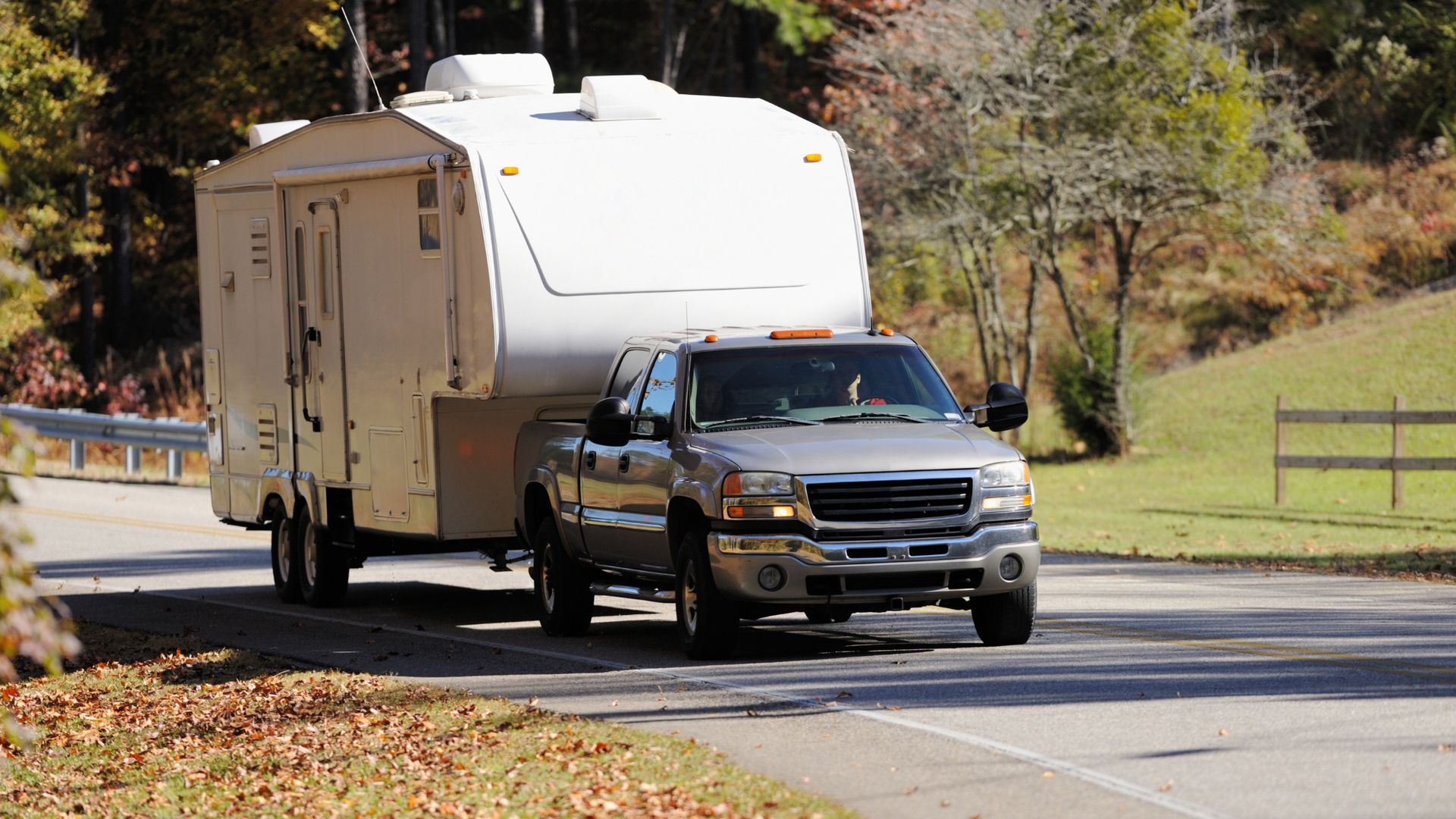
2. Match the Right Tow Vehicle to Your RV
Choosing the right tow vehicle is key. Make sure:
- Your vehicle’s braking system, engine power, transmission cooling, and suspension can handle the load.
- The
RV towing capacity exceeds the RV’s GVWR.
- The payload capacity is sufficient for your gear and passengers.
3. Use the Proper Hitch
Your hitch is the physical link between your tow vehicle and RV. Using the right hitch class is essential:
- Class I: Handles up to 2,000 lbs and is suitable for lightweight RVs.
- Class II: Handles up to 3,500 lbs and is ideal for midsize SUVs towing smaller trailers.
- Class III, IV, & V: Can handle up to 20,000 lbs and is best for trucks and heavier RVs.
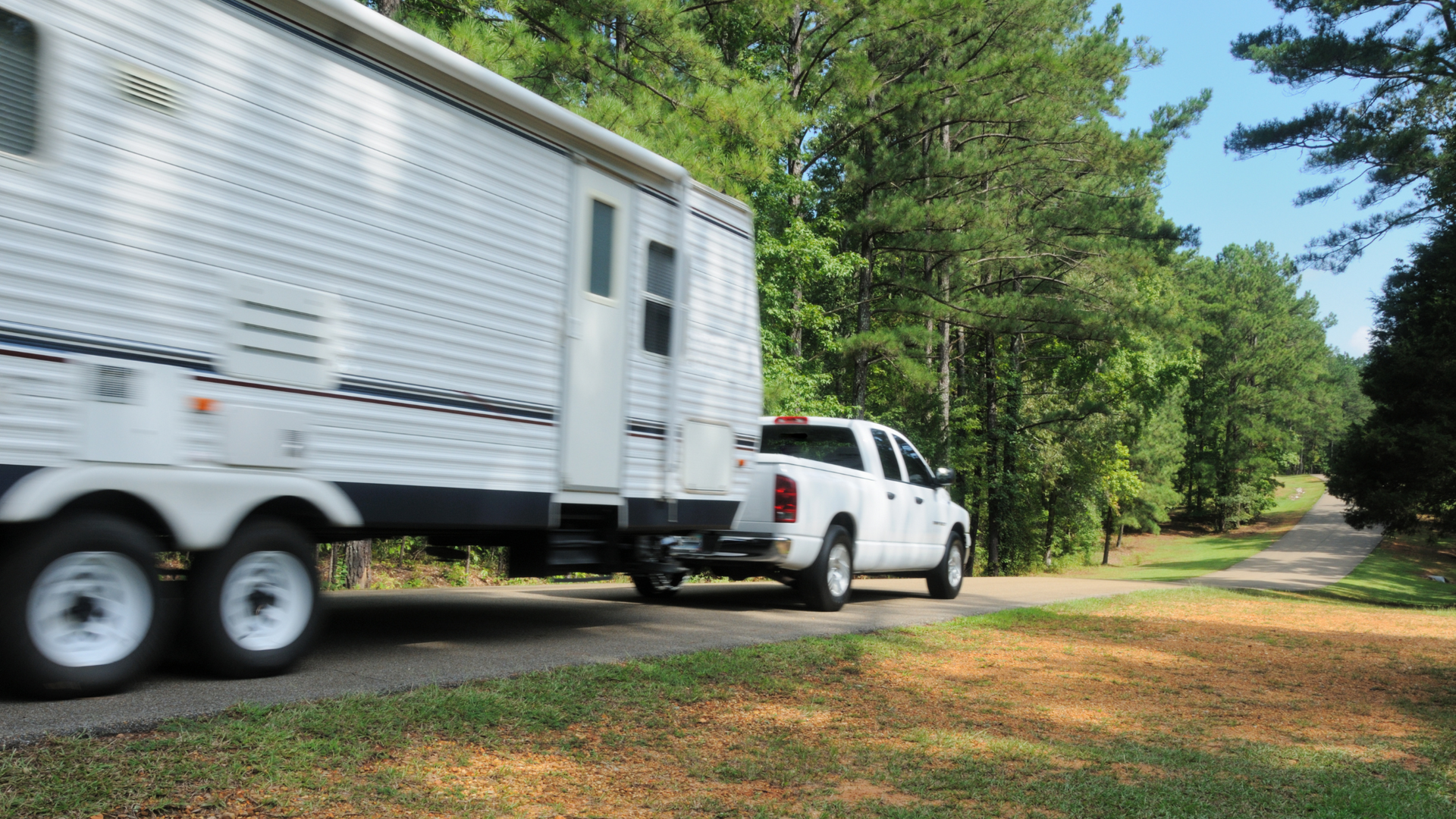
4. Perform a Pre-Trip Inspection
Before every trip, do a thorough walk-around check. A quick 10-minute inspection can prevent hours of trouble. Check:
- Tire pressure, tread, and brakes on both the tow vehicle and trailer.
- Suspension and look for worn tires.
- Lights and turn signals.
- Hitch, coupler, and safety chains for wear or damage.
- Secure all doors, windows, vents, and loose interior items.
- Adjust mirrors for clear visibility.
Practice your driving techniques as towing adds length and weight, requiring slower speeds, lower gears, and careful stops. Plan your route to avoid low bridges, overhanging trees, and tight turns if you’re new to backing up a trailer; practice in an empty lot.
Check the weather forecast & delay your trip in case of severe conditions.
Mountain driving is especially challenging. Use lower gears on long downhill stretches to maintain a safe speed.
5. Stay Legally Compliant and Informed
Towing laws vary by state, covering speed limits, trailer brake requirements, and maximum lengths. Stay informed about regulations for every state on your route. Ensure your RV and tow vehicle comply with Department of Transportation standards. Always carry proper registration, insurance, and permits.
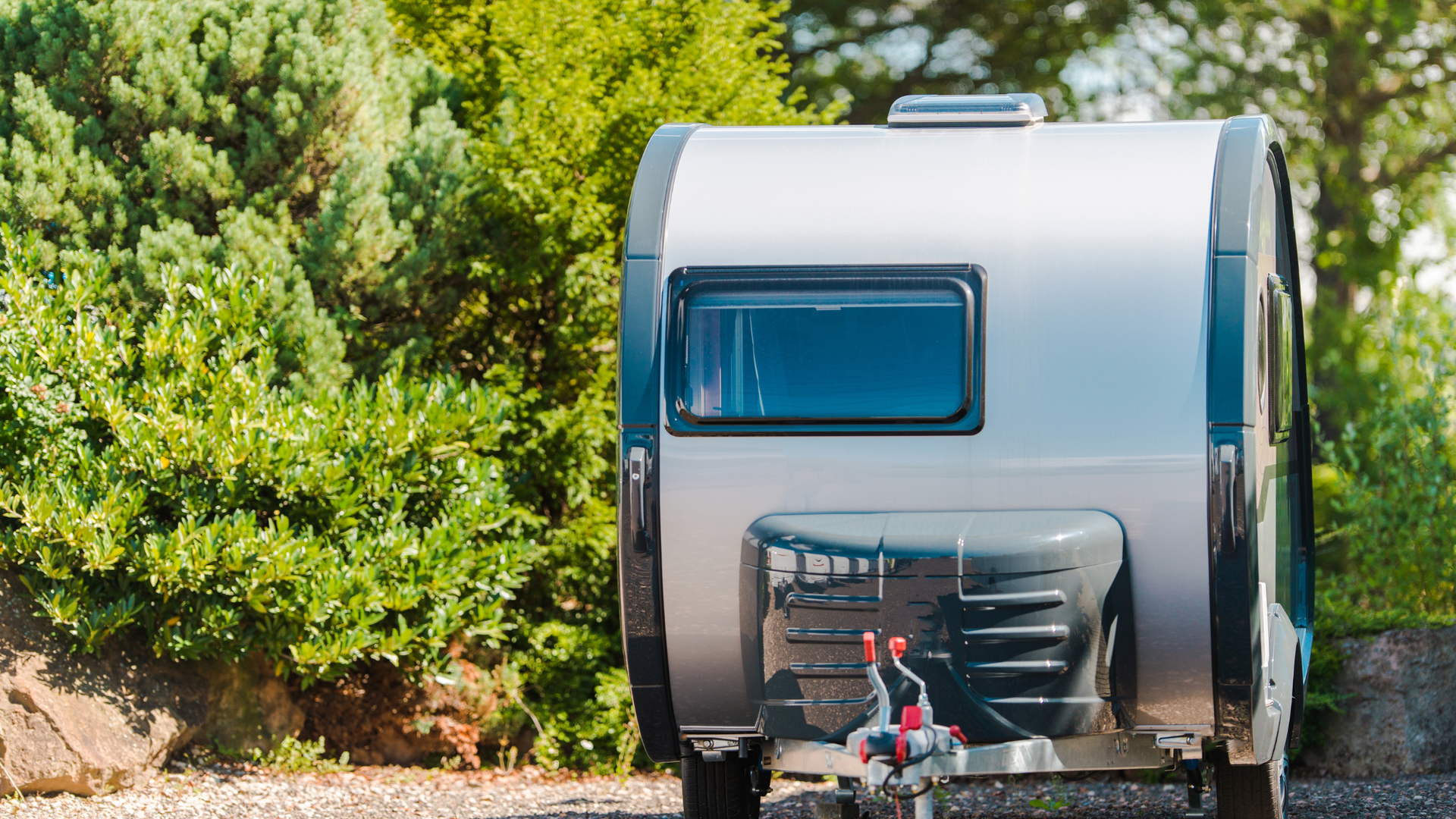
6. Ensure Proper Weight Distribution
To avoid instability, distribute weight properly:
- Keep tongue weight between 10% and 15% of the trailer’s total weight.
- Distribute cargo evenly across the RV’s axles.
- Include accessories like food, tools, propane tanks, and full water tanks when calculating weight.
7. Maintain a Safe Distance
Keep a safe following distance, about six seconds behind the vehicle in front of you. Increase this distance when towing heavier loads. Take wider turns depending on your trailer’s length. Use extended side mirrors to monitor the full length of your RV when turning.
8. Prepare for Emergencies
Always have a contingency plan for accidents or breakdowns. Carry a fire extinguisher inside the RV and keep an emergency kit ready with a jack, first-aid supplies, flashlight, flares, repair tools, reflective triangles, and roadside assistance contacts.
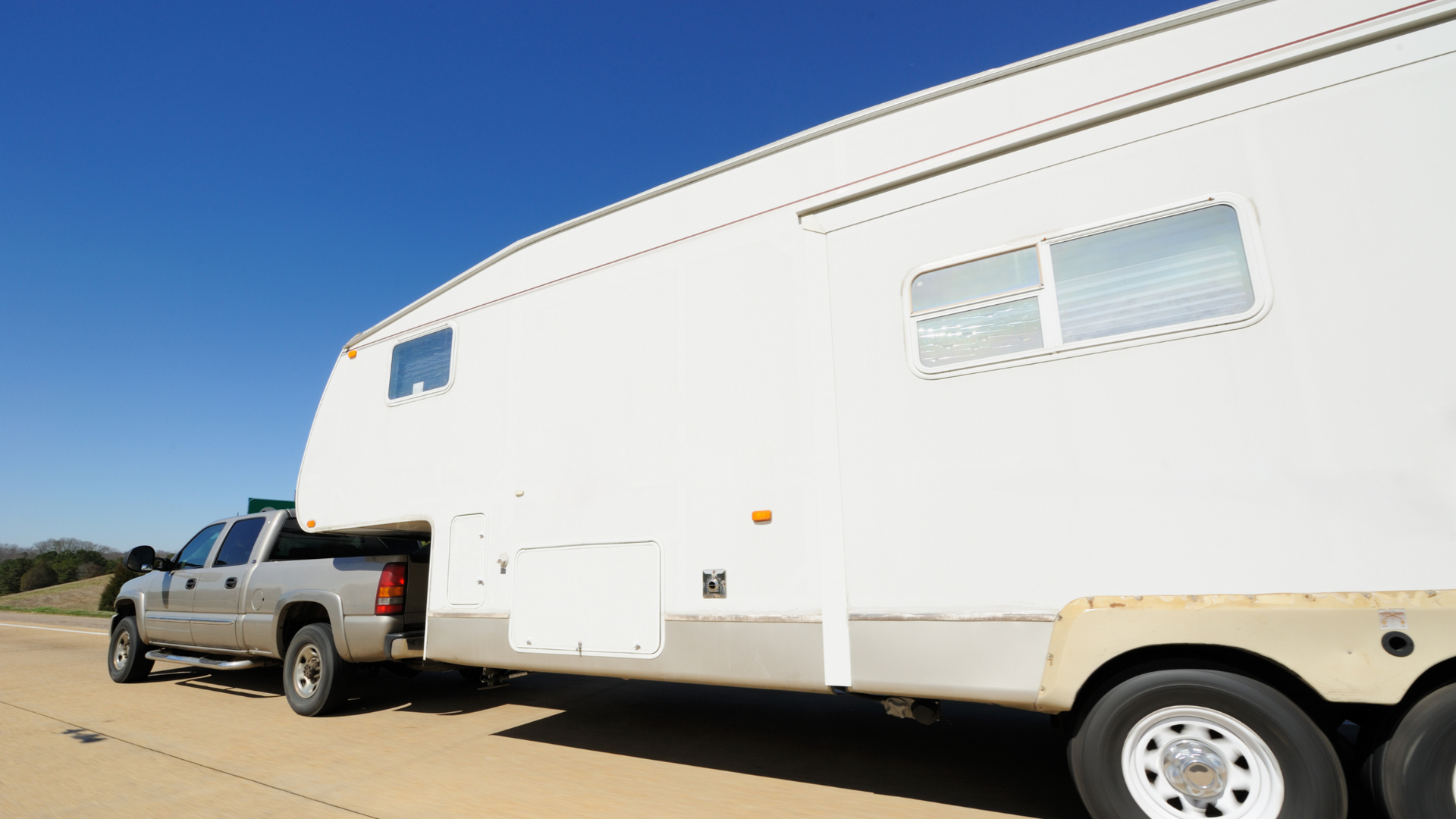
Conclusion
Safe towing ensures every trip is enjoyable, stress-free, and incident-free. Understand your vehicle’s weight limits, use proper equipment, adjust your driving habits, and prepare for emergencies.
From Arizona’s vast deserts to its stunning red rock canyons, the state offers endless RV adventures. Travel safely, and your journey will be just as rewarding as the destination.
At RV Life Arizona, we’re passionate about RVs and dedicated to helping owners get the most from their travels. Bookmark us for expert advice, vehicle tips, and more to keep your time on the road safe and enjoyable.


